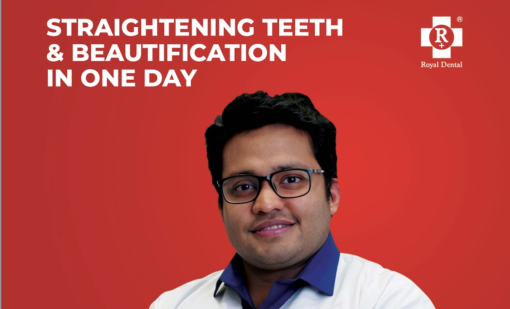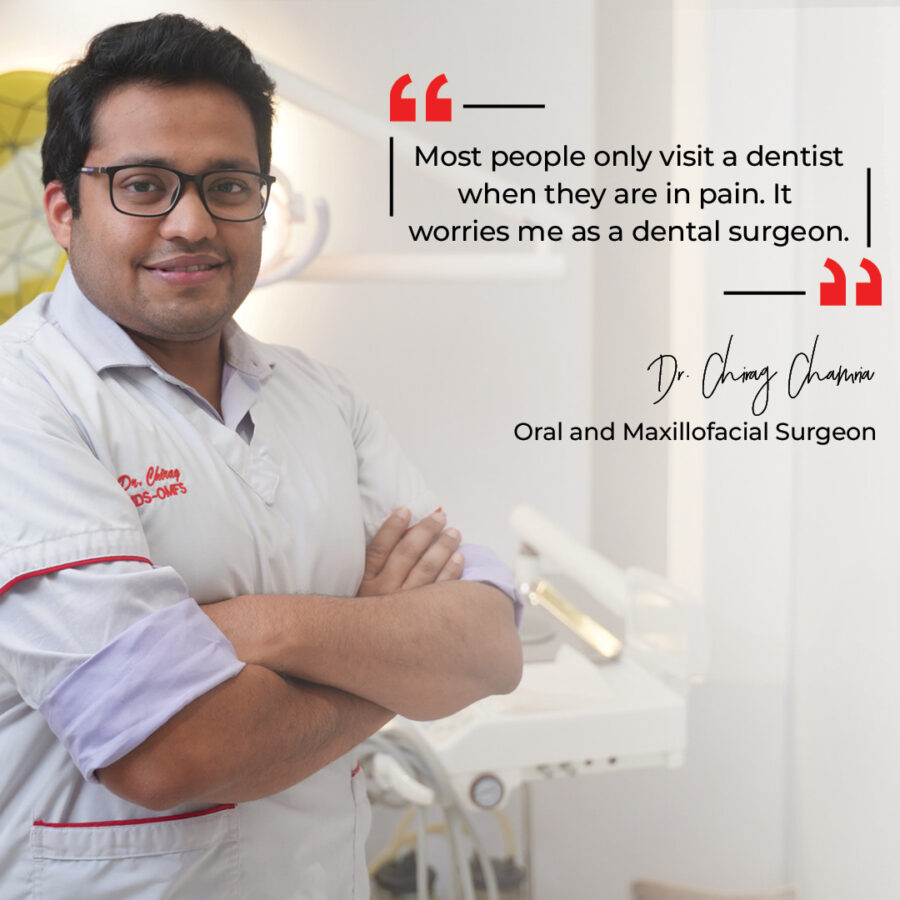Dear patients, we would like to extend a warm welcome to you as you embark on this one-of-a-kind adventure into the field of dentistry and the illustrious history of dental practitioners. Today, we set out on an adventure to find the answer to a question that has been nagging in the backs of many people’s minds: “Up until what age should a dentist continue their practice?” As an experienced dentist myself, Dr. Chirag Chamria, I am thrilled to lead you on this fascinating trip, which will delve into a variety of elements that determine the career trajectory of a dentist.
Passion and Dedication | Dentist Practice
Passion and dedication are the cornerstones of a dentist’s practice, regardless of their age. Dentistry is a profession that demands unwavering commitment and a genuine love for improving patients’ oral health. Driven by a deep-seated passion, Dr. Chamria continuously strive for excellence in his work.

Passion is what ignites the initial spark that leads individuals to pursue a career in dentistry. It is the driving force behind the countless hours spent studying, honing technical skills, and mastering the art of providing dental care. This fervor is what sets exceptional dentists apart, as they approach each patient with a genuine desire to make a positive impact on their oral health and overall well-being.
Moreover, dedication is what sustains dentists throughout their professional journey. It is the unwavering commitment to continually improve and stay abreast of the latest advancements in dental science and technology. Dentistry is a dynamic field that evolves rapidly, and dentists must stay proactive in acquiring new knowledge and skills to deliver the highest standard of care.
Physical and Mental Well-being | Dentist Practice
Physical and mental well-being are vital considerations for dentists as they contemplate the duration of their practice. Dentistry is physically and intellectually taxing, therefore a careful approach is needed to maintain long-term health and best patient care. Dr. Chamria recognizes the importance of maintaining a balance between professional responsibilities and personal well-being at Royal Dental Clinics.
Physically, dentistry can be physically taxing. Dentists spend long hours on their feet, often in awkward positions, performing intricate procedures. Repetitive motions and postures may cause back discomfort, neck strain, and carpal tunnel syndrome. It is crucial for dentists to prioritize self-care and implement strategies to mitigate these risks.
One way to address physical well-being is through ergonomic practices. Dentists can invest in ergonomic dental equipment and furniture designed to reduce strain on the body. Proper posture, stretching breaks, and flexibility and strength exercises may also reduce the physical demands of dentistry.
Mental well-being is equally essential for dentists. The profession can be emotionally challenging, with dentists frequently encountering patients in pain, distress, or anxiety. Dentists must manage their own emotional well-being while providing empathetic and compassionate care to their patients. This balance can be demanding, especially when facing difficult cases or managing patient expectations.
Dentists may improve their mental health by keeping a good work-life balance, meditating, and seeking help from colleagues or professional counselors. Continuing education and industry updates may boost confidence and lessen clinical expertise stress.
Continued Education | Dentist Practice
Continued education is a fundamental aspect of a dentist’s professional journey, and it plays a crucial role in determining the duration of their practice. Dr. Chamria understands the significance of staying updated with the latest advancements in dentistry and continually expanding knowledge and skills to provide the highest level of care to patients.
Dentistry is a dynamic field that constantly evolves with new research, technologies, and treatment modalities. To ensure patients receive the most effective and up-to-date care, dentists must commit to lifelong learning. Continued education encompasses various forms, including attending conferences, workshops, seminars, and pursuing additional certifications or advanced degrees.

Dentists learn about new trends, procedures, and materials that might enhance patient outcomes via continuing education. It lets them use evidence-based procedures and give cutting-edge therapies.
Mentorship and Legacy | Dentist Practice
Mentorship and legacy are powerful aspects of a dentist’s journey that extend far beyond the clinical practice itself.
Over time, dentists may mentor and teach budding dentists. Sharing information, skills, and wisdom with the next generation strengthens the profession and assures its future success. Mentoring helps prospective dentists handle the profession’s obstacles.
Mentorship takes various forms, including one-on-one guidance, clinical supervision, and academic teaching. Through mentorship, experienced dentists can help shape the professional development of young dentists, instilling in them a passion for excellence, ethics, and patient-centered care. By fostering strong mentor-mentee relationships, dentists can inspire and guide the next generation, ensuring a legacy of skilled and compassionate practitioners.
Community Involvement | Dentist Practice
Community involvement is a vital aspect of a dentist’s practice, allowing them to extend their impact beyond the clinical setting and make a positive difference in the lives of people in their local community.
It might include volunteering at local clinics or health fairs, teaching at schools or community centers, or organizing oral health campaigns. Dentists may enhance oral health knowledge and access by providing their services to marginalized groups.
Individual Circumstances | Dentist Practice
Individual circumstances play a significant role in determining the duration of a dentist’s practice. A dentist’s choice to retire or transition depends on personal aspirations, financial concerns, family responsibilities, and work-life balance. Respect and accept the diverse conditions that form each dentist’s career. Dentists may make educated choices that benefit their well-being and facilitate a seamless transition while maintaining excellent patient care standards by evaluating their personal circumstances.
Conclusion
The decision of when a dentist should retire is a complex and individualized one that takes into account various factors. According to the American Dental Association (ADA), the average retirement age for dentists is 68 years old. However, it is important to note that this is just a general benchmark, and dentists may choose to retire earlier or continue their practice well into their 70s or even 80s, depending on their personal circumstances and professional aspirations. The passion, dedication, physical and mental well-being, continued education, mentorship, legacy, and community involvement all play significant roles in shaping a dentist’s professional journey and determining the duration of their practice. Dr. Chirag Chamria shows that age is only a number when it comes to giving excellent dental treatment. At their retirement age, dentists should be honored for their contributions to oral health and well-being.
© All rights reserved by Royal Dental Implants Pvt Ltd
Issued in public interest






